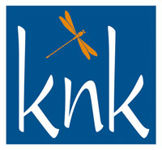
The Press Association (PA), after covering the news for nearly 150 years, has been generating headlines of its own recently – about robots and the future of journalism.
The money will soon be starting to flow from a Google grant of around £600,000 to fund a local news automation scheme at the national news agency – RADAR – Reporters and Data and Robots, in a collaboration with Urbs Media.
The initiative has led not only to headlines in the news business but also a degree of alarm that robots, and the artificial intelligence that drives them, could one day move on from producing experimental basic, sports and business results stories, to replacing human journalists.
Pete Clifton, the PA’s editor-in-chief, is perfectly happy to cope with what he sees as some of the over-excited reactions to the arrival of RADAR which could be generating thousands of simple local stories in the first six months of next year – the 150th anniversary of the founding of the agency.
“Even if people get the wrong idea about robots at the PA, what I like is that people are talking about the PA,” explains Clifton whose first job at the news agency was as a down-table sports sub.
“I want to see us experiment and be seen to be at the head of the curve rather than behind. For me, the whole RADAR thing has been a breath of fresh air. I don’t mind people taking the piss and getting the wrong idea because there is no older wizened hack than me,” adds Clifton who is a mere 55.
So, what is the reality of “robots” at the PA?
According to Clifton, it’s far removed from any automation of news-gathering and story writing, which the project “generally isn’t about”.
A chunk of the Google money will be used to hire a number of data-focused reporters to identify a whole range of stories within existing data, such as crime figures, and take them down to very local levels to send to the PA’s local customers.
“It’s not really about robots at all. It’s about running the automation for every postcode to look at the data and find the numbers and bring together the right set of words matched with those numbers,” explains Clifton who concedes that the result will be three or four modest paragraphs rather than prize-winning journalism.
The PA executive believes, however, it should be a really neat way of presenting many thousands of basic news stories that could not have been produced in any other way.
“It’s not about replacing any of our existing journalists. We cannot cover any of our daily content other than with people,” Clifton emphasises.
The positive response of PA customers has been to ask when the new service starts and when they can begin getting RADAR stories.
Maybe not robots at the PA this time, but is there a threat to journalist’s jobs from artificial intelligence over the longer term?
“Honestly, I don’t see it in the near term. In the longer term, I don’t know, but I think it will be small steps as far as I can see. The actual humans who go out and do the reporting are at the heart of what we do and that’s how I intend it to stay,” the PA executive insists.
PA expansion
During his two and a half years in charge, Clifton has been determined to gear up the digital part of the business and boost services to new online clients such as MSN, BT.com and AOL while protecting the core news feed covering everywhere from every session of both the House of Commons and Lords to the High Court for its traditional customers.
New ventures have also included providing breaking news and sports results for the electronic outdoor advertising screens of JCDecaux and taking on page productions for the INM newspaper group in Ireland and the Daily Telegraph.
“For the Telegraph, we are doing it across the piste seven days a week. We are doing news, sports, features (pages). They have basically outsourced page production,” says Clifton who foresees further growth in this area for the PA.
While inhouse subbing jobs will obviously be lost in papers which outsource page production, in the past year, PA jobs in page production have risen from eight to over 50.
“It’s a really interesting example of where we can step up and assist our customers in quite a traditional way, so it isn’t always about how we can do more around our digital services,” says Clifton who is determined to preserve the number of PA news gatherers.
There are about 150 at present, one of the largest teams apart from the BBC where Clifton worked for fifteen years. He regards the news gathering team - there are another 150 in editing and production - as the PA’s “calling card” at a time when reporting numbers elsewhere are generally falling.
You can reset material for different audiences and outlets “but if you take away that core news gathering, you have got nothing to play with,” he adds.
These days, of course, PA reporters also shoot video on their mobile phones and can call on the help of a PA drone and 360-degree cameras to enhance coverage.
At the coalface
Like his predecessor Jonathan Grun, who spent 36 years with the agency, Clifton runs PA editorial from the news desk rather than the editor’s glass box office in the corner.
“I don’t want to lose the newsroom bit. One of the real pleasures of being back at the PA is to be in the newsroom again. It’s full of great people, it’s exciting, the humour is often dark and outrageous but I wouldn’t miss it for the world,” the editor-in-chief says.
There has been no shortage of important stories to get the adrenalin going this summer – from the Manchester bombing and the London Bridge terrorist murders to the Grenfell fire.
When a big story breaks, if he is in the country, Clifton comes in the office whatever the time, as do reporters whether they are supposed to be on duty or not.
“You hesitate to say it about a summer of so many disastrous things, but I think that the PA came out of it showing all its skills to the very best. We covered every spit and cough and the feedback we have from our customers has been excellent. In those kind of events, we just snap into an extra gear,” Clifton explains.
Fake news?
Post Trump and Brexit, the attacks on the mainstream media, and the era of “fake news” and “alternative news” – all of it, Clifton believes, plays to the strengths and principles of a 150-year old institution.
“People still know that content that runs on PA has been checked and properly sourced. We won’t send anything out unless we are as certain as we can be that it’s true. We will verify things on social media before we use them. We don’t take fliers,” insists the PA editor-in-chief.
Clifton started his career on his local Northampton Chronicle & Echo, then a daily, and as a cricket lover, had for him the dream job of being a news reporter in the winter and cricket correspondent in the summer covering Northamptonshire for more than five years. He only decided to move on after he felt he had “covered every possible defeat they could have”.
Then it was a down-table subs job at BBC Ceefax, and on to Extel which was taken over by PA where he became chief sub on the sports desk. There had been rejection letters from PA along the way.
“To actually get to work there at 85 Fleet Street and be working at PA would be a stand-out moment for me even now,” says Clifton who later returned to the BBC to be editor of Ceefax. He says he was lucky to be in the right place at the right time and was able to bring Ceefax together with the growing BBC online news team.
“I was definitely the lowest form of life at Ceefax when I first went and when I went back, I found myself as the manager of several people who had been my boss before, so that was sweet,” Clifton concedes.
After accepting the availability of a BBC redundancy package, and was gone before some senior BBC executives realised what was happening, a spell as an executive producer at MSN led to another return – this time to the top editorial job at PA where once he had been a modest sports sub.
Still got it
Although he has been running teams and managing editorial processes for years, Pete Clifton says he hopes everyone knows he could report and sub if he had to.
“I can still spot a literal at a thousand paces. I am furious if we send mistakes out, so I still have high standards. I care about story telling so I could do it if I had to, but I think I have had a better career by moving inhouse and setting my stall out that way,” says Clifton.
He would like, however, to be able to go into a pub and say he works for PA and for that to be generally understood. Towards that end, he is encouraging more original reporting from the PA in areas such as using freedom of information legislation and training PA reporters to go on television and radio to discuss their stories.
In the past, he returned to both Ceefax and the PA in top positions; might he complete the pattern by returning to the BBC one day?
“I love the PA and have never been happier so if I spend the next years here and help it to innovate and stay relevant and successful, that would be a great way to round off my career,” says Pete Clifton.
“I am not looking to go back to the BBC. I wish them well but they can probably do very well without me,” says Clifton who spent his summer holidays training for the 100-mile Red Kite Race around the Chilterns.












